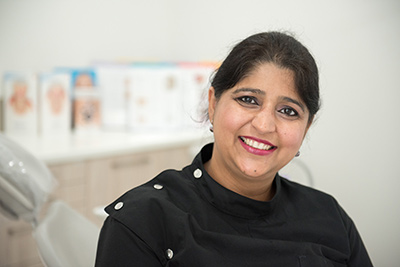Why many children with autism have oral health problems?
Autism is a condition concerning the development of the brain and refers to a broad range of features such as limited eye contact, difficulty in maintaining or responding to conversations, repetitive and atypical speech patterns, among others.
According to the World Health Organisation, one in every 160 children around the world suffers from autism spectrum disorder.
With a neurodevelopmental disorder, a child or adult is likely to develop oral health problems depending on their poor choice of food, medications, or unusual oral habits. Complex and atypical behaviour like headbanging, removing tooth buds, chewing on harmful objects, or picking at the lips can also add to their oral health problems.
A survey with the use of the World Oral Health Survey Form for children provides the following data:
- The inspection revealed that 47% of the children have mild grinding of the teeth, and 43.6% of them suffer from mild swelling of the gums.
- It is also found that more than half of children were brushing only once a day, hence fostering cavities on their permanent teeth.
- The most common reason observed was lip-biting by them.
- The cause of these dental problems also prevails due to unmet oral health services and untreated decayed teeth.
Another reason that increases the rate of dental problems among children with autism is the medication they consume. Around 45% of children and teenagers with autism spectrum disorder use medications whose side effects comprise toothache, prolonged bleeding, dry mouth, overgrown gums, among others.
Autism and Oral Health Care
Some people are still out there with a misconception that an autistic child comes with different teeth or facial structures. The increased rate of dental problems portrays that people are not aware of a few reasons or solutions to take control of the oral issues.
- Oral hygiene programmes should be set up at special needs schools to increase awareness and understanding of oral care. This programme for children with special needs can include demonstrations of hand washing, teeth brushing and maintaining a healthy diet via healthy eating.
- It is highly recommended to schedule oral health programmes for special needs teachers, nurses, parents, and caregivers of children with autism. They should be educated and trained on this matter to ensure healthy and improved dental care.
- An oral health therapist can be of massive help in the case of an autistic child. Children with this disorder are usually sensitive to loud sounds and light, which can develop discomfort, especially at a dentist clinic. In that event, an oral health therapist helps in creating a calm and secured sole operative space to establish trust and develop a relationship.
- Short and well-organised expert appointments can work more effectively since the attention span of autistic children is quite limited.
Conclusion
To sum up, these children with autism spectrum disorder are surely different, but they are no less than regular kids. They precisely need their loved ones’ assistance and patience in this journey of oral health care to lead a hearty life.
Our Principal Dentist
Dr Teena and the Rouse Hill Smiles team are dedicated to providing patients of all ages with the highest quality of care.

Dr Teena Bali
Dentist
Quick Contacts
- Rouse Hill Plaza G07-G08, 2-4 Aberdour Avenue Rouse Hill, NSW 2155
- enquiries@rousehillsmilesdentalcare.com.au
- (02) 8320 0548







